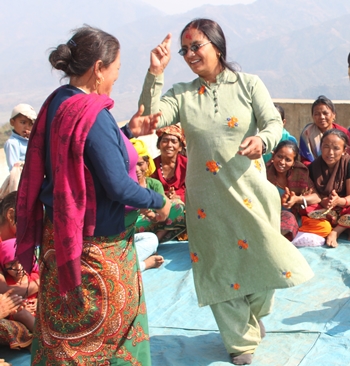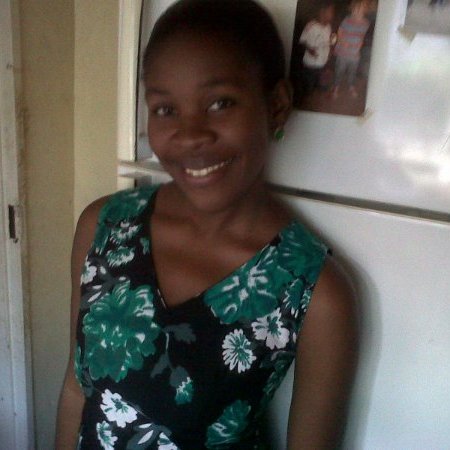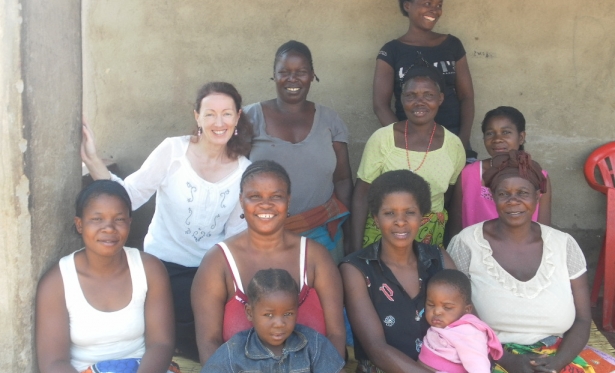Inspiring Women in International Development | Economia Magazine Article09.10.2014
Global attitudes towards gender equality shifting in favour of greater equality only highlight the harsh realities that women of the developing world have faced in the past. It makes the stories of these women all the more inspiring to know the difficulties they overcame to reach their goals and to commit to helping others.
Bina Silwal is the founder of Kopila, in Nepal. In response to the attitudes of rural Nepali communities, Silwal decided to dedicate her time to promoting equality through the non-government, non-sectarian, not-for-profit organisation - Kopila. She works ceaselessly to challenge historical attitudes towards women –especially those at risk of discrimination and violence. Her work encourages the message of equality to spread and has brought women into local-level decision making processes.
 Silwal says, “My experiences only made me stronger, many women would be intimidated enough to convince themselves that it is easier and ‘the proper thing’ to simply remain at home.”
Silwal says, “My experiences only made me stronger, many women would be intimidated enough to convince themselves that it is easier and ‘the proper thing’ to simply remain at home.”
Where other women would have given up, Silwal has persevered to establish a safe-house for women who live under the constant threat of sexual abuse and domestic violence.
Silwal notes the inherent dangers of pursuing gender equality in a place like Nepal. “Sexual harassment and abuse perpetrated in rural areas by village leaders against women is commonplace," she says. "Most cases are unreported or simply dismissed by authorities.”
Kopila is just one step on the long road to progress; so far 700 children have received educational support, 775 women entered self-help groups and 276 people received psychological counselling to overcome social injustice. The difference Silwal makes is immeasurable; these figures can never capture the true emotional difference that Kopila has made to the beneficiaries.
Just nine days after losing her job, AfID volunteer Rebecca Ryan (CIMA) was back on her feet en route to Zambia, where she was to work as the interim finance manager for the MicroLoan Foundation (MLF). MLF helps impoverished women to feed their families, send their children to school and pay for life-saving medicines. By providing small loans and ongoing business training and support, the charity empowers women in rural Malawi and Zambia to set up self-sustaining businesses.
Ryan says, “The more I got to meet the women and talk to my colleagues, the more I appreciated the importance of microfinance in the developing world – without which life would be much harder for women.”
She was in awe of the women whom MLF had helped – despite their circumstances they had triumphed in the business world and changed the local attitude towards women. This has helped to negate the social stigma that often surrounds women in the developing world as many are now able to enjoy financial independence.


Bina Silwal is the founder of Kopila, in Nepal. In response to the attitudes of rural Nepali communities, Silwal decided to dedicate her time to promoting equality through the non-government, non-sectarian, not-for-profit organisation - Kopila. She works ceaselessly to challenge historical attitudes towards women –especially those at risk of discrimination and violence. Her work encourages the message of equality to spread and has brought women into local-level decision making processes.
 Silwal says, “My experiences only made me stronger, many women would be intimidated enough to convince themselves that it is easier and ‘the proper thing’ to simply remain at home.”
Silwal says, “My experiences only made me stronger, many women would be intimidated enough to convince themselves that it is easier and ‘the proper thing’ to simply remain at home.”Where other women would have given up, Silwal has persevered to establish a safe-house for women who live under the constant threat of sexual abuse and domestic violence.
Silwal notes the inherent dangers of pursuing gender equality in a place like Nepal. “Sexual harassment and abuse perpetrated in rural areas by village leaders against women is commonplace," she says. "Most cases are unreported or simply dismissed by authorities.”
Kopila is just one step on the long road to progress; so far 700 children have received educational support, 775 women entered self-help groups and 276 people received psychological counselling to overcome social injustice. The difference Silwal makes is immeasurable; these figures can never capture the true emotional difference that Kopila has made to the beneficiaries.
Just nine days after losing her job, AfID volunteer Rebecca Ryan (CIMA) was back on her feet en route to Zambia, where she was to work as the interim finance manager for the MicroLoan Foundation (MLF). MLF helps impoverished women to feed their families, send their children to school and pay for life-saving medicines. By providing small loans and ongoing business training and support, the charity empowers women in rural Malawi and Zambia to set up self-sustaining businesses.
Ryan says, “The more I got to meet the women and talk to my colleagues, the more I appreciated the importance of microfinance in the developing world – without which life would be much harder for women.”
She was in awe of the women whom MLF had helped – despite their circumstances they had triumphed in the business world and changed the local attitude towards women. This has helped to negate the social stigma that often surrounds women in the developing world as many are now able to enjoy financial independence.

Grace Banda is the finance manager for Zambia's Barefeet Theatre, which works with orphans and vulnerable street children to make positive changes in their lives through the medium of performing arts. Their workshops deliver life-saving information on HIV/AIDS, violence, drugs, health and children’s rights.
Banda works in the tiny office next to the theatre's rehearsal rooms and she notes that she is something of a rarity – being a woman working in both a managerial and financial capacity.
“There has been a lot of talk on gender equality in the last few years and people are beginning to accept it," she says. "But there is still a long way to go here in Zambia.”
She claims that in order to be a woman, and to succeed in changing things, you need “passion and education”, but says that, sadly, it is not commonplace for women to try. Banda thinks that it is only through trying her best that she was able to find herself making the difference that she does to the children of Barefeet Theatre. “That's all we can do," she explains. "The best that we can.”
No matter how deeply entrenched attitudes towards women are in parts of the world, they can be overcome and it is the continued efforts of volunteers, organisations and local women who are making these changes and changing the prospects of future generations of women.
AfID is proud to have worked with such compassionate, determined people and to have helped play a small part in their inspiring achievements towards the betterment of society.
The job is far from done – as long as women face discrimination, people will continue to fight in support of a fairer, better quality of life.
Banda works in the tiny office next to the theatre's rehearsal rooms and she notes that she is something of a rarity – being a woman working in both a managerial and financial capacity.
“There has been a lot of talk on gender equality in the last few years and people are beginning to accept it," she says. "But there is still a long way to go here in Zambia.”
She claims that in order to be a woman, and to succeed in changing things, you need “passion and education”, but says that, sadly, it is not commonplace for women to try. Banda thinks that it is only through trying her best that she was able to find herself making the difference that she does to the children of Barefeet Theatre. “That's all we can do," she explains. "The best that we can.”
No matter how deeply entrenched attitudes towards women are in parts of the world, they can be overcome and it is the continued efforts of volunteers, organisations and local women who are making these changes and changing the prospects of future generations of women.
AfID is proud to have worked with such compassionate, determined people and to have helped play a small part in their inspiring achievements towards the betterment of society.
The job is far from done – as long as women face discrimination, people will continue to fight in support of a fairer, better quality of life.


